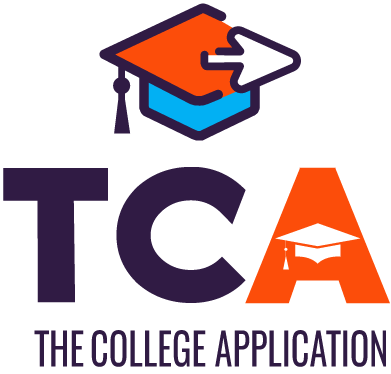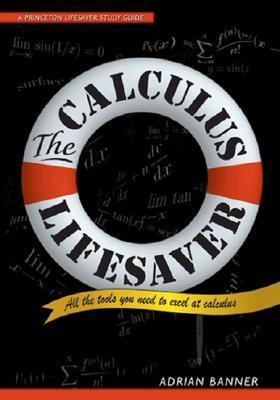Calculus is a fundamental branch of mathematics that deals with the study of rates of change and accumulation. It is widely used in fields such as engineering, physics, and economics.
However, mastering calculus can be quite a task, especially if you are self-learning. Fortunately, there are several calculus books available that are specifically designed for self-study.
When deciding on the best calculus books for self-study, consider the level of the book, the author’s writing style, and the depth of the material covered.
A good calculus book should be easy to follow, provide clear explanations, and offer plenty of practice problems to reinforce the concepts learned.
Now, regarding the level of the book, consider your current level of knowledge. Some books are designed for beginners, while others are geared toward more advanced learners. Settle for a book that matches your current skill level to avoid frustration and confusion.
We’ve researched several calculus books to identify the best ones suited for self-study.
Best Calculus Books for Self-Study
1. Quick Calculus: A Self-Teaching Guide
Quick Calculus: A Self-Teaching Guide is an excellent resource for learning calculus on your own. The book contains clear and concise explanations, making it easy to follow. Also, it also includes plenty of practice problems to help you reinforce what you’ve learned.
One downside of the book is that the book uses the FPS system, which may be confusing for some non-US readers who are more accustomed to the metric system.
Pros
- Clear and concise explanations
- Great for self-study
- Includes plenty of practice problems
Cons
- Uses the FPS system, which may be confusing for non-US readers
Bottom-line, it is a comprehensive and easy-to-follow calculus book.
2. Calculus Made Easy
Calculus Made Easy is an excellent choice for wrapping your head around the fundamentals of calculus. The conversational tone used makes it easy to understand, and the affordable price makes it accessible to everyone.
The potential downside is it’s probably 1/10th the size of most calculus textbooks, so you will need to supplement it with more detailed calculus books. Also, you might need to have a basic understanding of, say, trigonometry to fully benefit from this book.
Pros
- The book is written in a conversational tone, making it easy to follow along and understand the concepts.
- The book is affordable, making it accessible to anyone who wants to learn calculus.
Cons
- The book is relatively short, so it may not cover all the topics you need for a comprehensive understanding of calculus.
- We found the examples used to be inadequate.
3. The Calculus Lifesaver
The Calculus Lifesaver is an engaging study guide that helps you master calculus with ease. Authored by Adrian Banner, a former professor of mathematics at Princeton University, the book offers a user-friendly approach to learning calculus. This guide emerged from Banner’s popular calculus review course designed to help students achieve A’s in the subject.
The book is written in an informal and entertaining style, while maintaining mathematical rigor, making it suitable for beginners and advanced learners alike. The Calculus Lifesaver features over 475 examples, ranging from easy to hard, that provide step-by-step reasoning to help you build problem-solving skills.
You can use it as a supplement to any single-variable calculus textbook or as a standalone textbook.
Pros
- Comprehensive explanations: The author is highly knowledgeable about mathematics and can explain complex calculus concepts in a way that is easy to understand.
- Access to supplementary materials: The book comes with approximately 48 hours of online video lectures, which are a helpful supplement to the text.
- Value for money: The book covers two semesters of calculus, making it a great value for anyone looking for a calculus refresher or a supplement to an existing course/text.
Cons
- There are not enough diagrams to illustrate what the author is talking about, which can make it harder to grasp certain concepts.
- There are not enough examples and illustrations early on in the book to help understand the concepts of calculus before moving on to more advanced topics.
4. Essential Calculus Skills Practice Workbook
The Essential Calculus Skills Practice Workbook is an extensive guide written by Chris McMullen, Ph.D., who has over two decades of experience teaching math skills to physics students. The book provides comprehensive coverage of fundamental calculus skills such as derivatives of polynomials, trig functions, exponentials, and logarithms, as well as techniques of integration like substitution, trig sub, and integration by parts.
Although the workbook doesn’t cover every calculus topic, it focuses on the most critical skills required to apply calculus in fields such as engineering or physics.
Pros
- Great for introductory students and self-study review: The book is an excellent primer if you are starting calculus or have already studied it but have forgotten everything.
- The full solutions provided for all the practice problems are extremely helpful in identifying and correcting mistakes.
- Key points per section and clear guidance for every step: The book provides concise notes and key points after each section, which gives you the sense that you’ve just finished a lecture.
Cons
- Might not be suitable for beginners or someone looking to learn calculus from scratch. You need to have a robust understanding of algebra before attempting the problems in this workbook.
5. Calculus: A Complete Introduction
Calculus: A Complete Introduction is an all-encompassing guide to understanding and utilizing calculus. Whether you’re preparing for an exam or seeking to expand your knowledge, this book is a solid resource for beginners and experts alike. The author, Hugh Neill, a renowned maths expert, covers all areas of calculus, from functions and gradients to differentiation, exponential and logarithmic functions, and integration.
The book is designed to be user-friendly and contains elaborate explanations, worked-out examples, and test questions for each chapter.
Pros
- Great for self-learning: The author gets straight to the point, providing intuitive proof and deriving everything, making it easy for self-learners to understand the concepts.
- Starts with easy algebraic foundation: The book starts with an easy foundation of basic algebra, making it an excellent starting point for beginners.
- A complete guide: The book has hundreds of worked-out examples, great explanations, and practice problems with solutions.
Cons
- Algebra skills required: The book assumes a strong understanding of algebra, which could be a significant barrier if you struggle with algebraic concepts.
- Lack of thorough explanations sometimes: While the book provides intuitive proofs for many calculus concepts, it does not elaborate on every why and how, which could leave readers equipped to answer but not fully understand certain topics.
Buying Guide
When choosing the best calculus book for self-study, here are factors to pay attention to:
Level of Difficulty
Calculus books can range from introductory to advanced levels. Choose a book that matches your current level of understanding. If you are a beginner, go with an introductory text that covers the basics. Conversely, if you are already familiar with calculus, you may want to choose a more advanced book that goes into greater depth.
Content Coverage
Consider the content coverage of the book. Some books may be more focused on theory, while others may be more focused on practical applications. Choose one that covers the topics that are most relevant to your needs and interests.
Format and Layout
Some books may be more visually appealing, with colorful diagrams and illustrations, while others may be more text-heavy. Choose a format that works best for your learning style.
Reviews and Recommendations
Finally, it can be helpful to read reviews and recommendations from other readers and experts in the field- Especially genuine reviews that will give you a better idea of the strengths and weaknesses of different books, and help you make a more informed decision.
Ultimately, armed with these factors, you should easily settle on the best calculus book for your self-study.
Related Articles:
The 9 Best Physics Textbooks for College in 2023/2024 (Reviewed)






